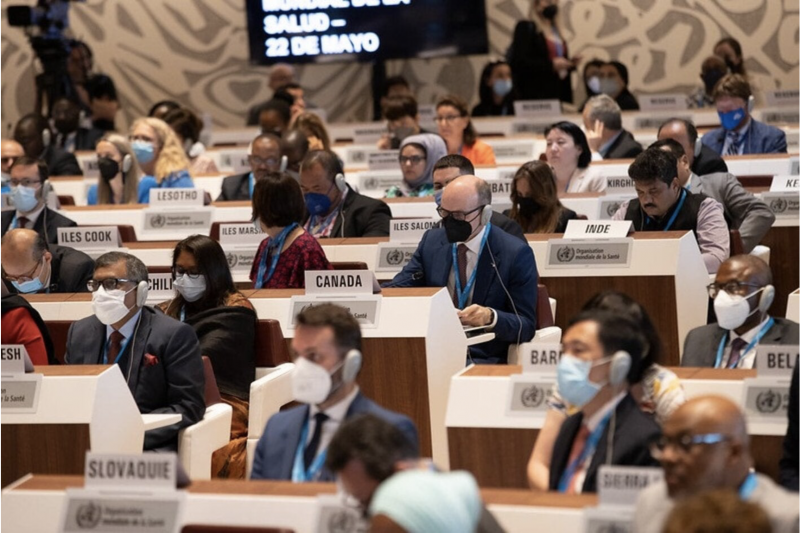
Health authorities of the Americas discuss their response to the COVID-19 pandemic at the 75th World Health Assembly
Health System & UHC, Communicable Diseases
June 8, 2022
Region of the Americas
The response to the COVID-19 pandemic was a principal focus of interventions by the highest health authorities of the Region of the Americas at the 75th World Health Assembly, which runs until May 28 in Geneva, Switzerland, under the theme Health for Peace, peace for health.
The following is a summary of the presentations of the delegates of the region in the plenary of the Assembly on May 23.
BRAZIL: Strengthening national health systems is essential to face future emergencies
Brazil's Minister of Health, Marcelo Queiroga, highlighted the actions taken by his government since the beginning of the COVID-19 pandemic to "save lives, preserve them, reconciling economic balance with social justice."
For Queiroga, strengthening national health systems is the fundamental pillar to face future health emergencies. "Brazil has one of the best systems of universal access to health in the world," he said, adding that during the pandemic his country invested "more than $110 million dollars to triple surveillance capacity and expand primary and specialized health care."
The minister noted that Brazil "has administered 750 million doses of COVID-19 vaccines and most of the Brazilian population has complied with the full doses and is moving forward with the booster doses." Queiroga defended equitable access to vaccines and stressed that his country dedicated "65 million doses and 85 million dollars to support WHO's efforts to expand global vaccination coverage against COVID-19."
UNITED STATES: The search for peace and health is not new, but it endures
Loyce Pace, Undersecretary for Global Affairs at the U.S. Department of Health and Human Services, noted that "the pursuit of peace and health is not new, but it endures," adding that her country is promoting universal health coverage and health equity, including advancing sexual and reproductive health and rights, and combating gender-based violence. "We are working to build a more resilient, accessible and equitable health system to meet the needs of our communities."
Pace said the United States is working to expand the health workforce and train and protect health workers, who are mostly women. "We continue to fight climate change and will continue to work with our partners to support global efforts to vaccinate, diagnose and treat" COVID-19, she said.
"This administration believes in the need for strong global relationships to combat COVID-19 and to prevent and prepare for future health emergencies, which is why it welcomes the consensus reached to strengthen the tools available to WHO and its Member States, including strengthening international health regulations, clarifying roles and responsibilities, increased transparency and accountability, sharing best practices and real-time communication with global partners," said Pace.
PARAGUAY: The demands and needs during the pandemic were the greatest in the history of the country's public health
The Minister of Public Health and Social Welfare of Paraguay, Julio Borda, began his speech with a recognition of the work "without pause or rest" of healthcare personnel of his country during the COVID-19 pandemic. "They assumed the greatest burden of work in a scenario of great uncertainty," he said.
Borda noted that "the demands and needs were the greatest in the history of public health, with difficulties in equitable and timely access to covid-19 vaccines, as well as to necessary supplies and medicines." This situation, he added, forced the Paraguayan government "to take emergency measures" that allowed "the increase of beds for critical care, the construction of contingency pavilions with health and support personnel, and the expansion of diagnostic capacity."
The Minister of Health highlighted some experiences left by the pandemic such as "the timely exchange of information, the importance of the transfer of technology and technical capacity, research and development, the fundamental role of technical cooperation and robust leadership within the Organization."
He also referred to the new international instrument on prevention, preparedness and response to health emergencies that is being discussed this week in the Assembly and said that it must consider the structural inequalities of countries with different levels of development, respecting their sovereignty and constitutional principles.